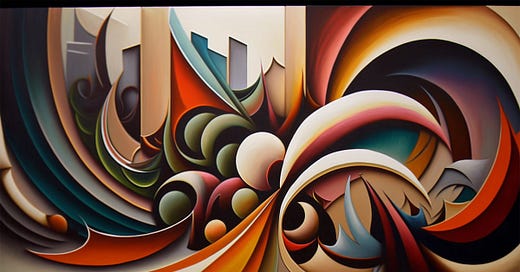These Airbnb’s always seems to look best in the photos. The snapshots ring with the allure of escape, glitz, glam. "Your life will feel different here," the photos seem to promise. They're seductive, and speak to some unsettled part of my mind. The part that's insecure in the here and now, and that hopes life will feel different elsewhere.
Walking in the door, the first impression is positive. It's not quite what the photos promised, but it's more than good enough. But the longer you stay, the more you begin noticing the small things. The thin, cracked paint. The cheapness of the furniture. The bathroom fixtures that don't quite work right. The kitchen that's missing essentials for actually making a meal.
Eighteen months ago, the first time we sojourned in Joshua Tree, it was the same. The place was fine, but the more we paid attention, the only thing we could see was the glaring artifice and the lack of love. These places aren't designed for humans to inhabit, or to feel comfortable or safe or nourishing. They're designed to look good in photos.
It reminds me so much of the "content" overflowing from every corner of the internet, hijacking our brains, but ultimately leaving us malnourished. Once you see The Pattern in one place, you begin to notice it everywhere.
My promise, as someone who builds digital worlds, is that I will keep sweating the details. I will keep caring about the small things that add up to create deeply human experiences. If something I've done looks great in the photos, but leaves people feeling empty the more they stick around, then I have not done my job.
Rob's Daily Invitation
The first version of The Forest will be imperfect. As I strive to build beautiful worlds that people love inhabiting, I also have to remember that "sweating the details" is a double edged sword. If I let my perfectionism run the show, everyone loses. The Forest is a project I intend to work on for the next five years. Something tells me that pre-ordering it, and watching this first version evolve over time, will be its own kind of magic.






Ironic thing is that Airbnb's genesis vision was to solve for exactly this; the lack of love in hotel rooms, and bring belonging and "home" wherever you go. And in the early days, you could easily find places that felt cozy and homey because people actually lived in them, but now almost all Airbnbs are purpose-built for Airbnb, which means optimizing P&Ls ala cheap furniture etc. "Be careful or you might become the very thing you despise," as they say